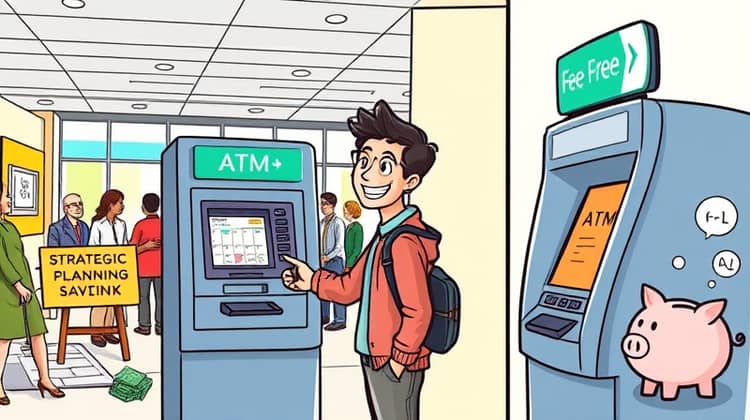In today's economy, saving money is more important than ever. With rising costs for everyday essentials, finding ways to cut expenses can help secure a better financial future. Fortunately, there are simple strategies you can implement into your daily routine that require minimal effort but can yield significant savings over time.
In this article, we will discuss 15 practical tips that you can start using right away to save money every day. From brewing your own coffee to reviewing your insurance policies, each tip is designed to be easy to incorporate into your lifestyle without feeling like a sacrifice.
By making small changes, you’ll notice how quickly those savings add up. Whether you’re looking to save for a vacation, pay off debt, or build your emergency fund, these strategies can help you achieve your financial goals. Let's dive into the first tip!
1. Brew Your Own Coffee

Many people start their day by purchasing coffee from their favorite coffee shop, which can add up quickly over time. Instead of relying on daily coffee runs, consider brewing your own coffee at home. It's not only more affordable, but you can also control the flavor and quality of the coffee you consume.
Investing in a decent coffee maker and quality coffee beans will pay off in the long run, saving you a significant amount of money while still allowing you to enjoy your daily caffeine fix.
- Purchase a coffee maker and grind your own beans.
- Explore different brewing methods like French press or pour-over.
- Try making coffee in bulk and store it in the fridge for iced coffee.
By brewing at home, you could save several hundred dollars a year, allowing you to allocate that money to something more meaningful or necessary. You’ll also find that it becomes a pleasurable part of your morning routine, making it easier to start your day positively.
Adding flavors or experimenting with different blends can turn this simple act into an enjoyable experience, enhancing your home coffee ritual.
2. Pack Your Lunch

Eating out for lunch can be convenient but is often much more expensive than packing your own meals. By preparing your lunch at home, you can save a considerable amount of money. Plus, you have the added benefit of controlling what you eat, which can be healthier than fast food options.
Investing a little time each week to prepare meals will not only save money but also contribute to your overall well-being. You’ll likely feel better during the day with healthier meal choices and will find yourself spending less on those unnecessary food runs.
- Prepare meals in bulk on weekends to save time during the week.
- Make a variety of sandwiches, salads, or grain bowls that are easy to pack and delicious.
- Utilize leftovers from dinner for next day’s lunch.
Packing your lunch can help you save tens to hundreds of dollars each month, depending on your previous habits. This small switch can create significant savings over time and lead to healthier eating habits.
3. Use Public Transportation

If you have access to public transportation, consider using it instead of driving. Commuting by bus or train can often save you money on gas, parking, and wear and tear on your vehicle.
While it may take longer than driving yourself, utilizing public transport can be an excellent time to read a book, listen to music, or catch up on podcasts, turning your commute into productive or relaxing time.
- Check if your employer offers public transportation subsidies.
- Look for a monthly pass to save even more on fares.
- Combine trips to make the most of your outings.
Making the switch to public transportation can save you money daily without altering your lifestyle dramatically. It's a smart choice for both your wallet and the environment.
4. Cancel Unused Subscriptions

With many services available today, it can be easy to accumulate subscription services that you no longer use or need. Assess your monthly subscriptions and consider canceling those that you find unnecessary or underutilized.
Taking a moment to review your expenses can yield surprising savings that can be directed towards more important financial goals.
- Streaming services that you rarely watch.
- Unused gym memberships or club fees.
- Monthly boxes and subscription services no longer appealing.
Reducing or eliminating subscriptions will decrease monthly expenses significantly and help you prioritize your spending.
5. Shop with a List

When shopping, going in without a plan can lead to impulse buys and unnecessary expenses. Create a shopping list before heading to the store to help you stay focused on what you need to buy.
Having a list can prevent you from straying into aisles with items that may catch your eye but weren’t part of your budget.
- Organize your list by store layout to maximize efficiency.
- Include only the items that you need to avoid over-shopping.
- Take advantage of sales and discounts for items on your list.
Sticking to a shopping list will contribute to a more disciplined spending approach, ensuring you get what you need without overspending.
6. Use Coupons and Discount Codes

Using coupons and discount codes is a tried-and-true method for saving money on purchases. With the advancement of technology, finding coupons has become easier through sites and apps dedicated to this purpose.
Before making a purchase, take a moment to search for any available discounts that may apply to your shopping needs.
- Search for coupons before checkout on retailer websites.
- Use mobile apps that find discounts or cashback offers for you.
- Sign up for newsletters to receive exclusive deals.
Implementing this simple practice can significantly reduce the cost of your purchases and help you get more value for your money.
7. Buy Generic or Store Brands

When shopping, consider opting for generic or store brands instead of name brands. These products often provide similar quality at a much lower cost, allowing you to save without sacrificing value.
Make a habit of comparing prices to see if the lesser-known brand can do the job just as well, if not better.
- Most store brands have been verified for quality.
- Try a few options to find your home favorites.
- Buying in bulk can also lead to more savings.
You might be surprised at the quality of these brands, which can lead to substantial savings over time.
8. Avoid Impulse Purchases

Impulsive shopping can quickly derail your budget, leading to unnecessary spending on items that you don’t need. To mitigate this, give yourself a cooling-off period before making a purchase. If you are tempted to buy something, ask yourself if you truly need it or if it’s just a passing fancy.
Creating a list of desires versus needs can help clarify what purchases should be prioritized, keeping your impulses at bay.
- Wait 24 hours before making any non-essential purchases.
- Use the 30-day rule for larger items: wait a month before buying.
- Limit shopping trips to once a week to reduce temptation.
9. Turn Off Lights and Unplug Devices

Saving money can also come from reducing energy consumption at home. Ensure that you are turning off lights in rooms that you're not using and unplugging devices that aren't in use.
This small habit not only saves money on your monthly utility bills but also contributes to a more sustainable lifestyle.
- Use power strips to easily switch off multiple devices at once.
- Switch to energy-efficient LED bulbs to further reduce consumption.
- Set reminders for yourself to turn things off when not in use.
Making these small but impactful changes can significantly lower your electricity costs month after month.
10. Limit Eating Out

Dining out can be enjoyable but comes at a premium price. Limiting the frequency of eating out will help you save a substantial amount of money while encouraging more home-cooked meals.
When you do dine out, consider sharing meals or looking for restaurants with special deals to stretch your dining-out budget further.
- Pick specific days to eat out, like weekends.
- Take advantage of happy hour discounts.
- Plan monthly ‘dine at home’ challenges.
Reducing how often you eat out can lead to enormous savings that can be reinvested into a savings account or other investments.
11. Find Free or Low-Cost Entertainment

Entertainment doesn't have to be expensive. Explore free or low-cost activities in your community, such as local parks, festivals, and concerts. Doing so can keep your entertainment budget in check while still providing enjoyment and social interaction.
Research can uncover numerous resources for enjoying quality time without breaking the bank, from visiting museums on free days to attending community events.
- Look for community event calendars online.
- Join local groups with interests that match yours for shared activities.
- Utilize public libraries for free books and programs.
Finding low-cost entertainment can create a more sustainable budget and allow for fun without financial strain.
12. Set Savings Goals

Having clear savings goals in mind helps you stay focused on your financial targets and allows you to track your progress over time. Make sure your goals are attainable and specific, whether it's for a vacation, a new car, or an emergency fund.
Set both short-term and long-term goals, so you always have something to work toward and help motivate you to save consistently.
13. Cut Down on Electricity Use

In addition to turning off lights and unplugging devices, consider other ways to cut down on your electricity consumption. Simple habits like using natural light during the day and adjusting your thermostat can contribute to lower energy bills.
An energy audit can help you identify areas where you are wasting electricity and allow you to make informed changes.
- Seal drafts from doors and windows to prevent heat loss.
- Introduce energy-efficient appliances when upgrading.
- Limit heating and cooling by dressing appropriately for the season.
14. Avoid ATM Fees

ATM fees can quickly add up, especially if you consistently withdraw cash from machines that are not affiliated with your bank. Opt instead for using ATMs within your bank’s network to avoid incurring these extra charges.
If cash is necessary, consider planning your withdrawals strategically.
- Look for banks that offer fee-free ATMs.
- Use cash back options at retailers when possible.
- Find ATMs that are part of your bank’s network.
By being mindful of when and where you withdraw cash, you can save those extra dollars for more meaningful expenses.
15. Review Your Insurance Policies

Reviewing your insurance policies allows you to ensure you're not overpaying for coverage. Explore options of combining policies or shopping around for better rates to secure significant savings on premiums.
Regular evaluations can yield unexpected results, such as discovering lower-cost plans that still meet all your coverage needs.
- Contact your insurer to discuss different coverage options.
- Explore discount opportunities if you bundle services.
- Annually compare quotes from different providers.
Conducting periodic reviews of your insurance can save you money in the long run and help avoid unnecessary financial strain.
Conclusion

In conclusion, adopting these simple strategies can lead to substantial savings over time. Implementing even a few of these tips can help ease the financial burdens we all experience in today’s economic climate.
The key is commitment; make these practices a routine part of your life, and soon, you will find yourself not just saving money but improving your overall financial health.
Remember that every little bit helps, and often the most straightforward changes yield the most significant results. By being mindful of your expenses and practicing smarter spending habits, you can empower your financial future.














